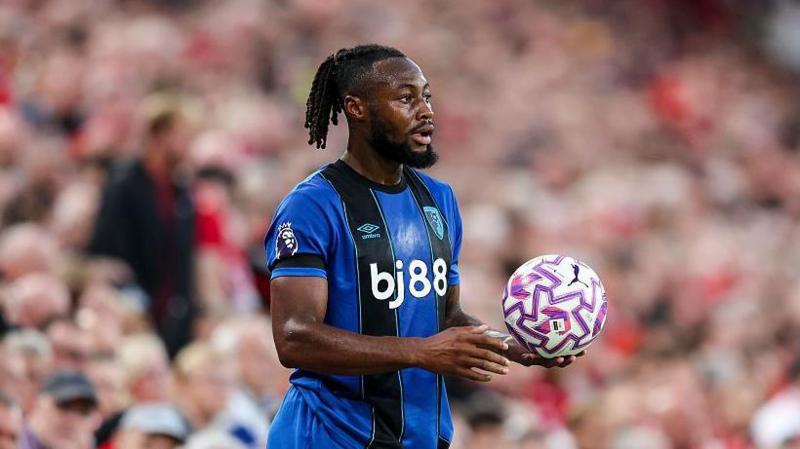Semenyo Demands Jail, Lifetime Bans for Racist Abuse Offenders




Amidst the ongoing battle against racism in sports, Bournemouth forward Antoine Semenyo has taken a firm stand, advocating for stricter measures, including prison sentences for those found guilty of racist abuse. His powerful voice adds significant weight to the discussions around racism in football, highlighting a persistent issue that tarnishes the beautiful game.
Racism has plagued football grounds for decades, casting a long shadow over the sport's reputation and its ability to unify people from diverse backgrounds. In recent years, there have been numerous instances where players were subjected to racial abuse by fans, both in stadia and online. The psychological impact on the players is profound, and the ripple effects can be felt widely, diminishing fans' experience and the inclusive spirit of the game.
Semenyo's comments come at a time when football authorities, clubs, and governing bodies are under increasing pressure to implement more effective strategies to combat racism. While steps have been taken—such as the adoption of the UEFA three-step protocol, which includes pausing the match, making stadium announcements, and potentially abandoning the game—the effectiveness of these measures is still up for debate. Additionally, with the rise of social media, racists have found a new avenue to launch their attacks, making it imperative for online platforms to also engage actively in the fight against racism.
The suggestion to include prison sentences as a potential consequence for racist acts shows Semenyo’s commitment to seeing significant changes. It poses a reflection on the legal frameworks currently in place and the need for sanctions that could deter this behavior. Across Europe, countries like the United Kingdom have laws against incitement to racial hatred, but the application of these laws in football has been inconsistent, and the penalties often limited to fines or temporary bans.
Looking at other sports can provide some insights into what could be effective. For instance, in rugby and cricket, there have been concerted efforts to not only punish those responsible for racism but also to educate fans and players alike about the importance of diversity and respect. These programs have had varying levels of success, yet they represent proactive steps worth considering in the football arena.
Community engagement is another critical aspect. Clubs and players have a unique position within their communities, giving them a platform to lead outreach programs. These programs could focus on educating fans, working closely with schools, and supporting campaigns that celebrate diversity and inclusion. Bournemouth and other clubs could play pivotal roles in these initiatives, leveraging their influence for positive change.
Moreover, Semenyo's call to action is important in encouraging a discourse on how racism should be tackled in everyday life, not only in high-profile arenas. It’s about changing a culture, shifting attitudes, and ensuring everyone understands the impact of their words and actions.
As we move forward, it is crucial for the football community to listen to voices like Semenyo’s. The implementation of real, punitive measures alongside educational and community-focused initiatives could be the multi-faceted approach required to root out racism. We must aim for a future where football truly exemplifies its power to bring people together, regardless of their race, ethnicity, or background, making the sport a beacon of diversity and tolerance.
Antoine Semenyo's stance might be seen as bold by some, but it is undoubtedly a necessary push towards a more inclusive and respectful football culture. As more players speak out and demand change, hopefully, the governing bodies will begin to implement stronger, more effective measures that go beyond the surface and tackle the deep-seated issues, making the sport a safe and welcoming space for everyone.